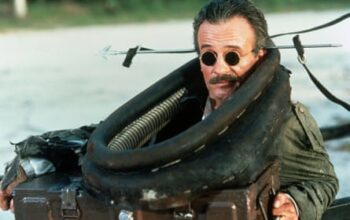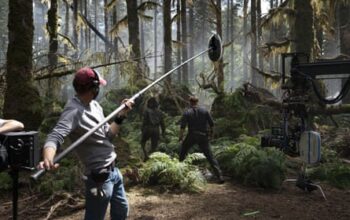
In the often insufferably cutesy romance The Greatest Hits, our heroine travels back in time whenever a song from her past is played, nostalgia acting as a magical, transporting force. While watching the film, we too are pulled back but rather to all of the far superior films we’re inconveniently reminded of, from High Fidelity to Richard Curtis’s similarly high-concept About Time to the ’00s Sundance breakouts (500) Days of Summer and Garden State. It’s a film about the power that great music has in distracting us from the now that instead showcases the power that great films have in distracting us from the lesser ones they inspire.
But even without the many whiffs of familiarity, writer-director Ned Benson’s film would still be hitting a bum note. It’s all too self-consciously disheveled, every band T-shirt looking less like it was found at a gig and more like it was bought at an Urban Outfitters and it’s this slick cleanness that affects both style and story. Harriet (Lucy Boynton) is stuck in a grief spiral after her longtime boyfriend Max (new Superman David Corenswet) dies in a car accident. She’s shifted jobs, become withdrawn and walks around with ear plugs and a giant pair of headphones because it’s not just that certain songs take her mind back to certain moments with him, it’s that they take her entire body as well. If she hears a song that was playing at some point during their relationship, she’s thrown back to that exact moment. Her efforts to save him remain fruitless, though, and so her blessing becomes a curse.
Benson’s debut The Disappearance of Eleanor Rigby – an ambitious trilogy of films following the dissolution of a marriage from different perspectives – offered up something tantalising in concept, but he never quite found enough truth or raw emotion to affect us in the way a film about something so difficult really should. We’re in glossier, more heightened territory here, but in a film about grief and how we struggle to course-correct after loss, and there’s also nothing wrenching within, everything too broad and stylised to get to us. The decision to only show Max either in Harriet’s brief journeys back or in fleeting montage means that we never really get to know him as anything but a handsome cipher, and so we’re told to mourn a relationship that means nothing. Her thankless gay bestie tells her “you lost yourself when you lost him,” which means very little when we don’t know who she or he ever was.
Harriet meets someone new – the charming Justin H Min – but their courtship is too twee and artificial as well as dated (at one moment, I said he’d better not be taking her to a silent disco, and he then takes her to a silent disco). It’s the kind of real-people-don’t-act-like-this romance that Min’s last film, Randall Park’s incisive comedy Shortcomings, would have ridiculed. Even the fantastical elements don’t make that much sense, magic with rules that are loose and undefined, leaving us with an eye-roll of an ending we can see from a mile away.
Premiering at SXSW, it moves more like a Sundance film from years prior or one a studio would craft to look like it belonged there, a calculated crowd-pleaser with a cold, synthetic feel. Despite that title, this one’s a miss.
-
The Greatest Hits is available on Hulu on 12 April in the US and on Disney+ elsewhere
Source: theguardian.com



